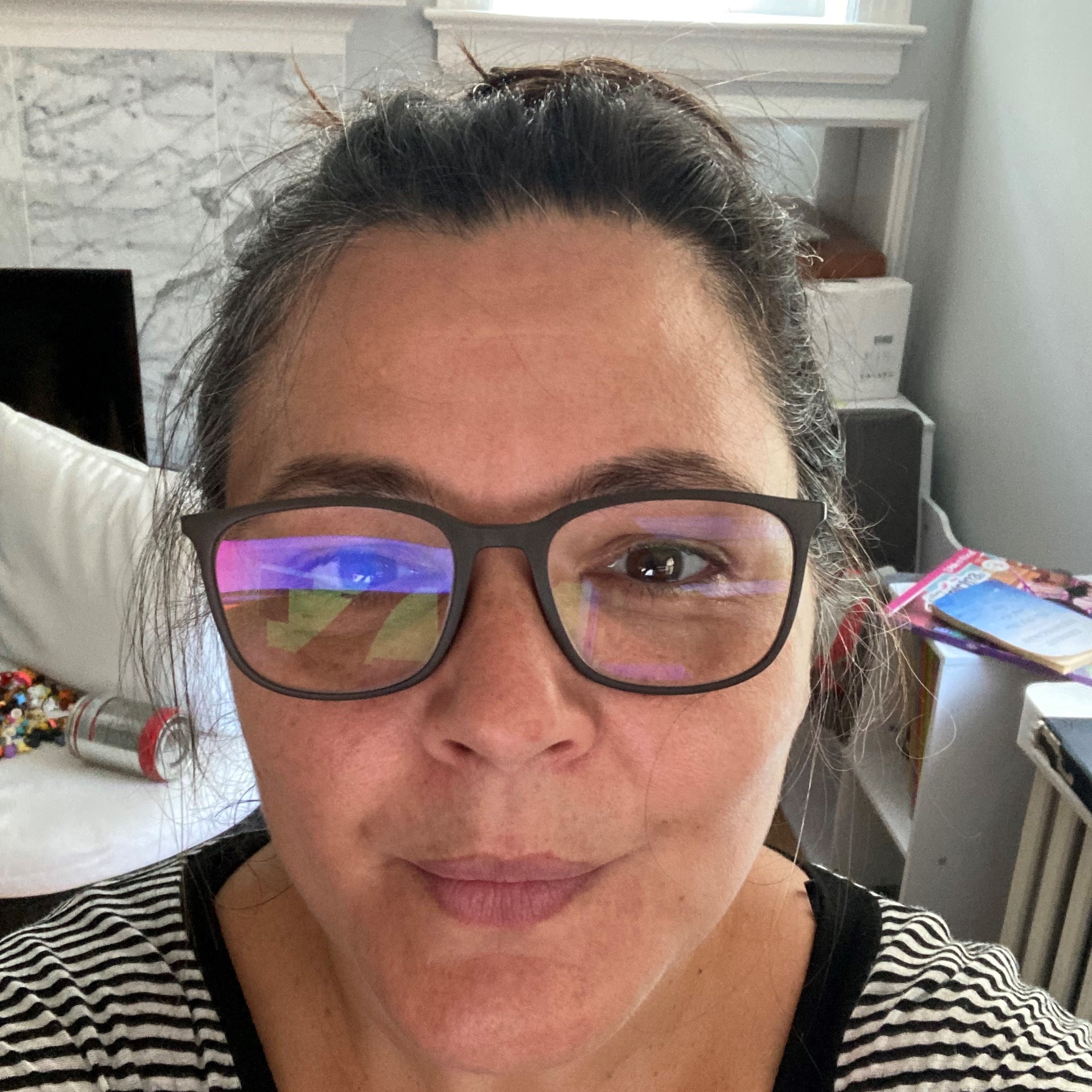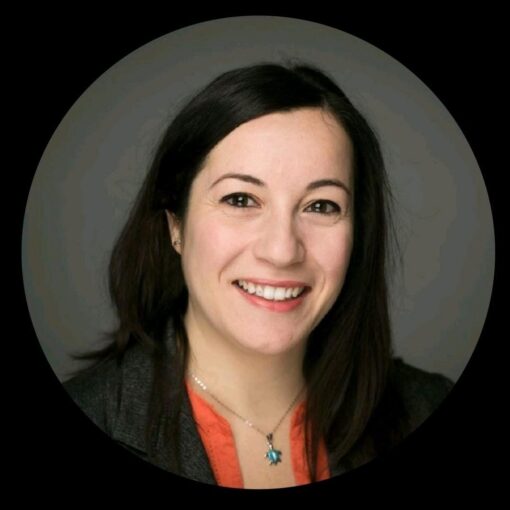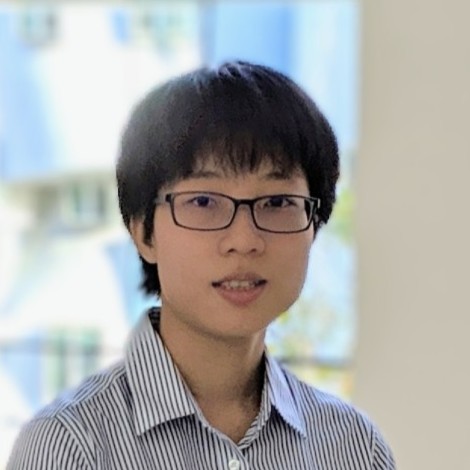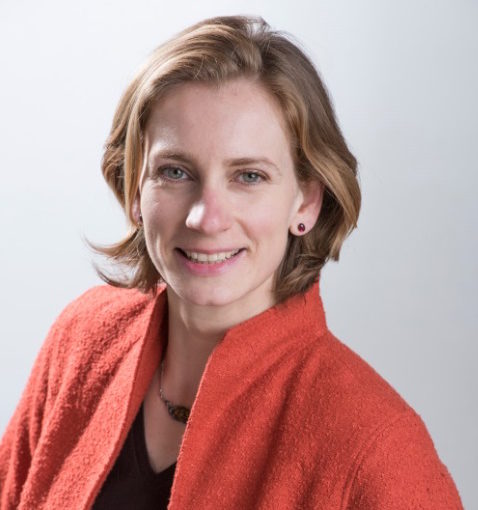PhD, Biological Sciences, Autonoma University of Madrid, 2002
| Scientific Visual Communicator | |
|---|---|
| The Visual Thinker | |
Year entered into a non-academic position: 2017
Job highlight: Experienced scientist with over 20 years in research recycled as a scientific visual communicator to help you deliver the message of your project to broader audiences.
My research training set me up to… keep dreaming that accurate science reaches everybody in our society.
Left academia after: 15 years in different research institutions in several countries and holding a variety of titles, including Associate Principal Investigator.
What’s your background?
I studied Organic and Physical Chemistry and started my PhD in Enzymology as a wet lab scientist. Back then the Spanish Ministry, the funding agency for my PhD, sponsored me to join the York Structural Biology Lab (YSBL) in the UK for related training in Computational Structural Biology.
Since then, all the projects I have been involved in utilise MD simulations, protein docking, and other tools in this field to uncover biomedical findings.
Why did you move away from academia?
I was trained mainly in the UK and The Netherlands.
To me, science means working hard and building beautiful stories.
The current research system is moving in a different direction. Scientists are pushed to become managers rather than researchers.
This comes with an established hierarchy rather than a collaborative environment, and the frenzy of publishing in major journals regardless of the importance of your project, which are things that did not fit with my way of looking at Science. So I have found a way to keep involved in it since this is the thing I know and love the most, but without having to participate under the current terms.
Is there anything you miss about academia?
If I am honest, I try to cheat myself so that I do not miss anything, but I do. There is something about discussing research topics that excite my neurons and heart. I love listening to research topics and coming up with goofy ideas that unbalance the course of the project. We scientists are trained to question everything and to come up with alternative out-of-the-box solutions.
This process of questioning and looking at things from different angles is missing in my current job. Though I admit that I had a client that after brainstorming with me, went back to rewrite the manuscript we were working on 😉
How did you get this job? Did you face any challenges when considering a move away from academia or applying for the role?
To move away from the standard academic world, I set up a company to offer my services to my ex-peers. It has been quite a bit of a struggle. I did not have any formal training in important business-related matters, such as administrative processes to create and manage my business and taxes, or any marketing skills. In my opinion, the training we receive as scientists is a bit obsolete and very focused on being an employee. Things are changing fast in the current world and basic knowledge of these issues is needed in the science curriculum.
What motivated you to/why did you choose the sector you transitioned into?
After more than 20 years in scientific research, I knew that this was my passion and the thing I could do the best. I had the desire to reinvent myself but I did not want to do it in something that I was unfamiliar with and did not care much about.
I knew that communication between science and society was not where I think it should be. I contemplated becoming a scientific writer or an editor, but I realised that visual assets were a more powerful tool in modern communication. So I jumped into it.
Though I am not an artist, I always have a certain inclination towards it. Back in the old times, when I decided I wanted to study Science there was no option to work on my artistic skills. I do not see that as a limitation but I challenged myself and I started following tutorials and taking courses on illustration, animation and any other topics I thought I was not strong enough in for this business.
Did you think you had the skills required for your current position before you started? Were you right?
I knew I was not that strong on art and business issues, but for me, scientific communication is not only about making pretty figures but visually presenting a scientific topic.
I still believe I was right but I keep working on my weaknesses. I love the idea of learning new things continuously and seeing the progress that they bring to this profession and my work.
How did your PhD prepare you for your current job? For example, what were the transferable skills that you developed during your PhD that are most relevant to your current job?
There are many. I think the most important for me are the scientific background and the mindset that you acquired during my PhD.
We are taught to be inquisitive and to question every bit of information until a cohesive piece is developed in our minds. We learn to look for information and keep debugging this information until we can explain every part of the whole story.
These are transferable skills in visual scientific communication. That’s why I say that it is about not only pretty pictures but also accuracy (what is the information you include and you leave behind, and how you present that).
We also learn to multi-task and to fail and rethink our theories.
And there is no science without collaboration so we are pretty good as team players but we also understand that sometimes we need to push our projects on our own.
Overall, I think the PhD training gives you some analytical and soft skills that are transferable to many and very different professional roles.
Did you have any preconceptions about your sector that proved to be wrong?
I thought I could use my strong background without going back too far to the basic foundation of science. But this is wrong.
There are many things that we think we know by heart until someone asks us to explain. Although the picture is complete in our brain, we might be short of words on how to express these things to people who are not at the same knowledge level on the topic.
Can you describe a typical week in your job?
My first things are obligations with my kid and my dog. After that, I normally try to keep a routine so I start with checking emails and social networks.
Then comes the time I like the most and it is trying to put pieces together for the project. Though I work only digitally, I still do this part with paper and pen: jot down all the keywords for a particular project and try to understand what they are and do. From there I find connections and how to represent these interactions. Not all the projects I get go through this phase since it is also common that the scientists might have already had a well-defined sketch they want me to work on. But even if not strictly necessary, I tend to spend a bit of time clarifying everything for my own understanding.
After that, I roll up my sleeves and it is time to be less scientific and more of an artist. Often I will look at tutorials that explain how to do what I need at that moment. So if I get stuck, I move on to another part and open a tab with this tutorial.
Even in periods when I do not have client work, I try to spend time creating personal work, both for personal marketing and also because after all, we are working with a limited amount of assets, so I might be able to reuse some previous work later.
And this goes on and on every day of the week.
What is the workplace culture like? Please include comments on work-life balance, flexibility, remote working?
I am working from my home desk. All my work is done remotely which brings me a good balance between work and life. I believe that for this job, a strong collaboration between scientist and visual communicator is key. All the technology that has exploded during the pandemic brings us a wonderful possibility to interact with our clients while still keeping a certain flexibility in our hours and how we organise our schedules to still have a productive and family-oriented life.
Do people with a PhD frequently get hired in the company/sector?
I would say that a PhD is not necessary( unfortunately, in my opinion). But many people holding PhDs are getting hired by many companies and studios that see the potential to have an in-house in-between person. A PhD does not give you full scientific knowledge but having a scientific mentality offers many possibilities, such as being able to find accurate information. We are resourceful people, so the PhD, though not a guarantee, makes you a strong asset for this job. Just keep working on your art skills as well as your business and marketing skills
What are your favourite parts of your job?
I love doing the research and brainstorming part of the job. I think that having a complete understanding helps me start creating the right layout. This part facilitates the inclusion of the important information, how to present it and more importantly helps me leave out some information that does not provide essential details in creating the visual for the topic.
For me, visual assets do not need to be amazing art pieces, but strong work that immediately gives you the message without the need to read the text.
What are your reflections on your career path?
I have no big regrets about where my scientific career path has taken me at the professional level, though I have paid a toll on the personal one.
So as a reflection, I always enjoy my work, and my PhD and scientific career are a plus for this profession. Maybe I would have loved discovering all the possibilities a bit earlier in my life, but we are not in control of everything so … I love my job as a scientific communicator regardless of how much time I “lost” in learning illustration, design, animation, VR and all the unlimited possibilities out there.
Do you have any advice for current graduate students and postdocs considering a career outside of academia?
Of course. academia is wonderful, no doubt about it. But with the current situation and the technology, changes are here and stepping out of academia, though challenging and scary, is something that more of us should be doing.
If you love science but think that the communication part is still missing, do not hesitate. Prepare yourself in face of whatever you see as your limitations and weaknesses and go for it!
What do you know now that you wish you’d known when exploring a transition?
Business. Marketing! I honestly thought that just being able to draw, model and animate was enough. But this is not true.
It has been hard for me to come to terms with that I need to put myself out there and that I need to charge the “correct” amount for my work. Scientific mentality makes you believe that this is a hobby but it is not. For many of us, this is a way of working and living so be ready to fight for your rights.
Can you recommend any relevant resources, organisations or events that might help somebody new to the sector find out more about it?
If you are looking for cheap courses to learn illustration, animation, and infographics, Domestika platform has been a good discovery for me. Their courses cost around $15-$20 and even though they are not super intense, they contain enough information for you to create a curriculum and look for your own resources on the internet.
The Association of Medical Illustrators (AMI) has worked for me. Their main orientation was originally directed towards more medical topics, but they are also strong in broader scientific topics. Their resources on business and the knowledge of the people there are fantastic. The Mentorship program is worth every penny and time I have invested.
The Guild of Natural Science Illustrators (GNSI) has been my work-changing organisation. I have found people there who are strong communicators and mentors who see the potential in people like me.
 I run my own studio, called The Visual Thinker (www.thevisualthinker.xyz).
I run my own studio, called The Visual Thinker (www.thevisualthinker.xyz).
My idea is to keep it as a small business since it allows me to manage only myself and make the decisions that I think work best for every project.
The motto of my company is“Let’s Unleash the Creativity to bridge the gap between Science and Society”, “if I can illustrate it, you can understand it”
At the moment I do not have any internship opportunities but this does not mean you cannot contact me and we can have a chat about the field, and even work together in creating something that sounds interesting to both of us 😉 If I can help anyone, I am in.
https://www.thevisualthinker.xyz/
Twitter: @glogliiita





